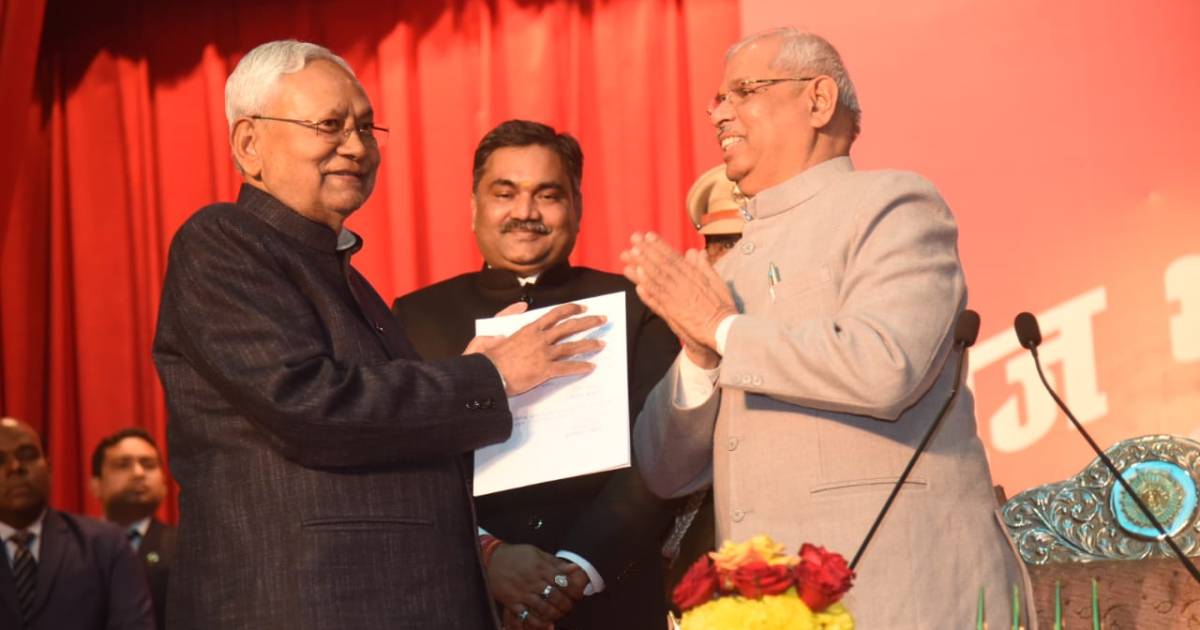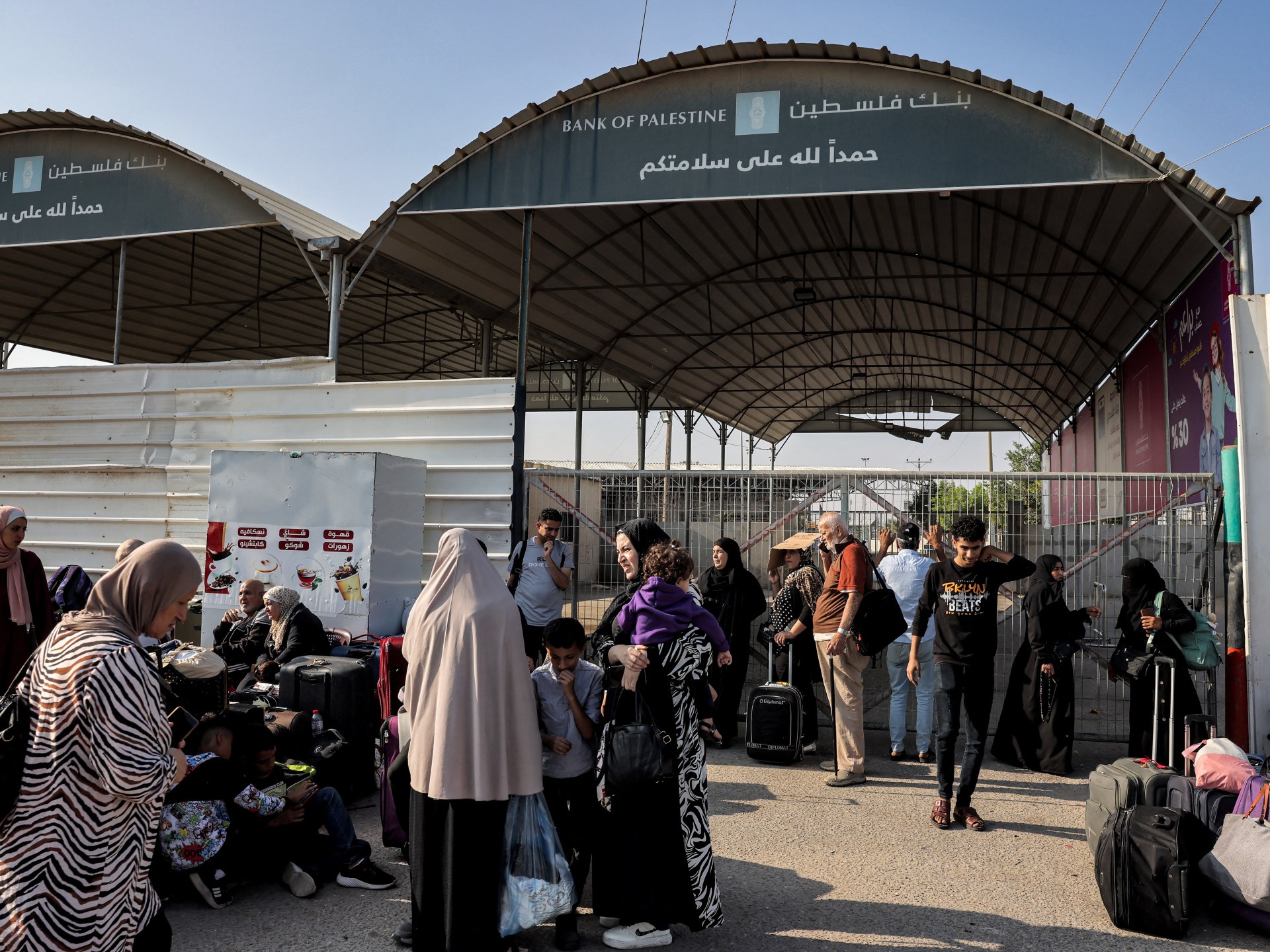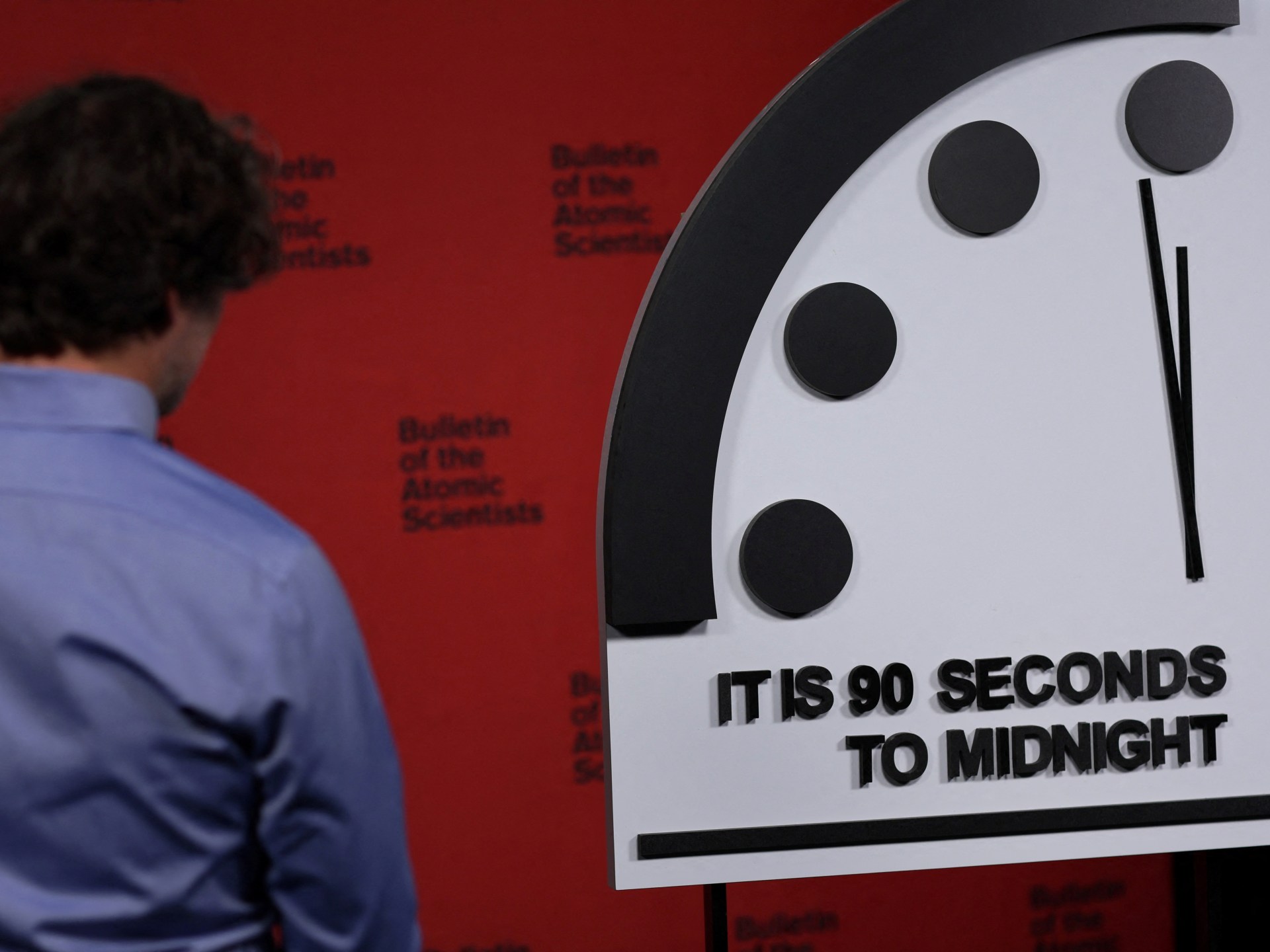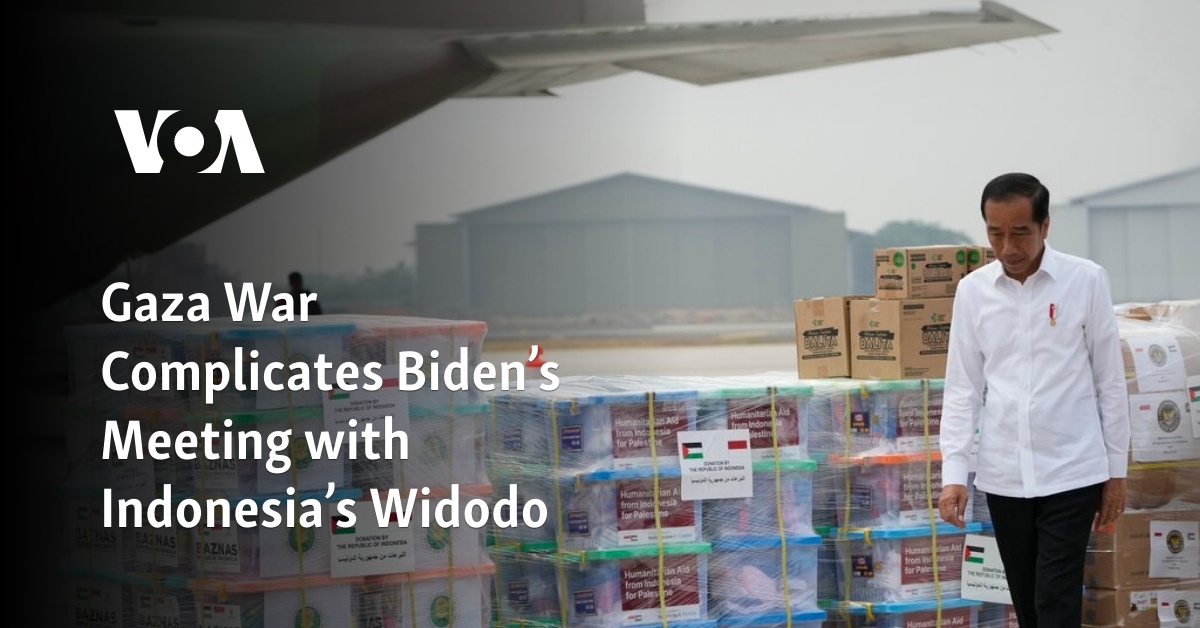
New Delhi, India – Over the weekend, a popular joke on Indian social media was about Nitish Kumar, the 72-year-old nine-time chief minister of the eastern Indian state of Bihar.
Kumar’s party, Janata Dal (United), or simply JD(U), was one Part of the India opposition bloc – a group of more than two dozen political groups seeking to compete against Prime Minister Narendra Modi-led Bharatiya Janata Party (BJP) in national elections between March and May.
But on Sunday he dropped out and instead joined the National Democratic Alliance (NDA), a coalition of parties led by the BJP. He resigned as prime minister and was then sworn in again, this time with his new partners – all within hours.
The joke (in translation) was: “Nitish Kumar is the only chief minister who is the chief minister but resigns as the chief minister so that he can remain the chief minister.”
The BJP and its allies could well be laughing. Two months before nearly a billion Indians vote to elect their next government, Kumar’s exit from the INDIA alliance hurts the opposition’s chances of challenging Modi, who is seeking a third term as prime minister. It also reveals deeper cracks in the opposition alliance.
Also last week, Mamata Banerjee, the chief minister of neighboring West Bengal and leader of the Trinamool Congress (TMC), quit the alliance led by India’s main opposition Congress. In addition to the Congress, the alliance consists primarily of regional, state-specific parties.
Both Banerjee and Kumar cited divisions with the Congress for their exit from the alliance. The biggest point of contention: Who can contest how many of the 543 parliamentary seats in the country?
Congress vs. regional parties
The INDIA bloc hopes to take advantage of India’s first-past-the-post electoral system by fielding a joint opposition candidate against the BJP and the NDA in all parliamentary constituencies. Such a move, opposition parties argue, would ensure that the anti-BJP votes are consolidated and not split among different opposition players.
But agreeing on consensus candidates is easier said than done.
“All regional parties are alleging that the Congress is trying to put a lot of pressure on them and demanding more seats than they should get,” Sanjay Kumar, political analyst and psephologist, told Al Jazeera.
This claim was confirmed by JD(U) general secretary KC Tyagi. Speaking to Al Jazeera, he said the Congress was interested in occupying political space but did not want to cede it to regional parties.
“In the states where the Congress is strong, it is not even giving up a seat. And then they want a disproportionate number of seats in the states where the regional parties are strong,” Tyagi said. “Not only us, but all members of the alliance felt uncomfortable with them.”
Similarly, TMC’s Banerjee, while announcing her decision to break away from the alliance, cited the failure of seat-sharing talks with the Congress as one of the reasons for contesting the elections alone.
What has also angered the TMC and the JD(U) is that Rahul Gandhi, a Congressman and scion of the Gandhi family that led the party for decades, embarked on a journey from the east to the west of the country without giving them proper due to consult.
The journey is called the Bharat Jodo Nyay Yatra, which loosely translates to “Uniting India through Justice March,” a sequel to Gandhi’s Bharat Jodo Yatra last year in which he walked more than 4,000 km (2,485 miles) from the south to the north of India.
Both Banerjee and Nitish Kumar said they were not asked about the route of the yatra, which passes through the states they rule. The JD(U) further said that instead of a Congress program – which only strengthens Gandhi’s image – the party should have organized a nationwide program under the banner of India.
The alliance voters also accused the Congress of delaying seat-sharing talks. Last year, the Congress won provincial elections in the key southern state of Karnataka and the hilly northern state of Himachal Pradesh. While this gave the party (and India’s opposition) some momentum against Modi, defeats in the three key northern Indian states of Madhya Pradesh, Chhattisgarh and Rajasthan in December were a major blow to the Congress.
Banerjee and Kumar said the Congress postponed seat-sharing talks in the hope of winning these three states where it was locked in a one-on-one fight with the BJP. A victory in these states would have given Congress a better negotiating position in the alliance.
INDIA vs INDIA
The alliance also faces a challenge in states like Punjab and Kerala, where the INDIAN partners are the main competitors and the BJP has a negligible presence.
In Punjab it is Aam Aadmi Party (AAP), a voter in India, is the ruling party and Congress is the main opposition party. The AAP also heads the government in the national capital territory of Delhi.
In Kerala too, the Left Front rules the state while the Congress is in opposition.
While Banerjee and Kumar made their exit last week, AAP Punjab Chief Minister Bhagwant Mann announced that his party would go it alone in the state and not ally with the Congress.
Officially, however, the AAP says that while negotiations over seats in Punjab are still in progress, a tentative agreement has been reached with the Congress in a few other states, including Delhi.
“We had two meetings with Congress that included their senior leaders. We had a very constructive dialogue with them and discussed some states,” Saurabh Bharadwaj, an AAP spokesperson and legislator in Delhi, told Al Jazeera. “We will end the discussion soon.”
“As far as Punjab is concerned, our state unit is not keen on entering into an alliance. But we have not yet taken our final call,” he added.
Negotiating the interests of the state units with those of the central party leadership in Delhi is a challenge facing the Congress and other regional parties in the alliance.
However, there are some states where negotiations over seat allocations are making progress. Akhilesh Yadav, the chief of the Samajwadi Party (SP), the main opposition party in the BJP-ruled state of Uttar Pradesh, said he was ready to let the Congress fight for 11 of the 80 parliamentary seats in the state.
SP spokesperson Ashutosh Verma told Al Jazeera that as per the alliance’s rules, the INDIA partner with the most influence in a state would take decisions on seat allocation in that state.
Verma also pointed out that the alliance is planning a “tactical fight” in states like Punjab, where the INDIA partners are both first and second.
“In one of the alliance meetings, it was decided that this should be the case in the states of Punjab and Kerala [election] would be fought in a similar way. These are the states where the BJP is either at third or fourth position. We do not want to make the BJP the main opposition in these states. That is our strategy,” Verma said.
“Bad optics”
Al Jazeera reached out to Congress for comment on the allegations made by its INDIA partners, but had not yet received a response.
At a press conference on Saturday, Congress general secretary Jairam Ramesh admitted that the departures of Banerjee and Kumar were a bad prognosis for INDIA.
“The situation could be better…The optics…people are watching. News is coming that a party is quitting and will form a government with the BJP, that another party is unhappy with us… it doesn’t look good. “This is not good for India’s image,” Ramesh said.
However, he added that the party has not given up hope on the alliance.
Sanjay Kumar, the political analyst, said the BJP would benefit from the split in the alliance. In Bihar, the JD(U)-led government had carried out one nationwide caste census that the INDIA Alliance had hoped to use it as a campaign tool, which actually promised the prospect of increased affirmative action for people belonging to several lower castes, collectively known as OBC (other backward classes).
“The BJP will benefit from the new turn taken by Nitish Kumar. It will be much easier for the BJP to mobilize the OBC votes now than in the past,” he said. “Nitish Kumar was the leader who took charge of conducting the caste census. Now that he has switched sides, the BJP can claim that credit,” he added.
In West Bengal, Kumar said, a three-way fight between the TMC, the Congress-Left alliance and the BJP will help Modi’s party.
However, the BJP has rejected the prospects of the opposition alliance – with or without the cracks therein.
“We never took this alliance seriously,” said RP Singh, a BJP spokesman. He pointed out that the party won 303 out of 543 seats in the 2019 general elections. This time the party is aiming for 350 seats, he said.
And while the elections may now be approaching, the BJP, he said, has been “working on this for two years”.
“Alliance or not, it has no impact on the BJP.”






Recent Comments